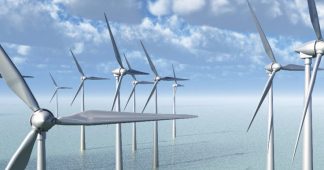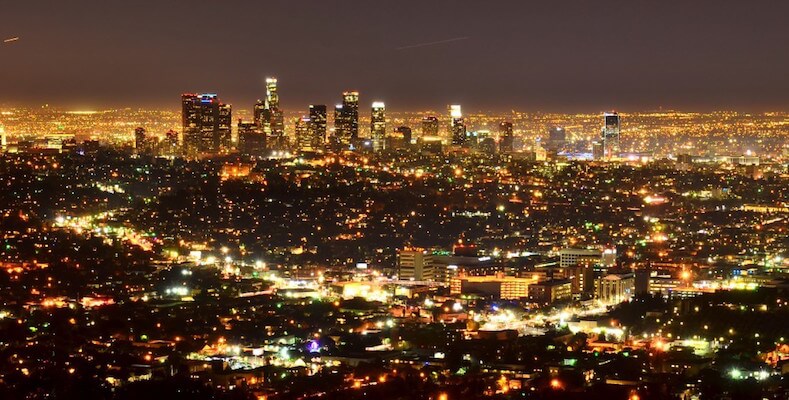British energy pioneer warns of uncertain future while highlighting increasing probability of a ‘great transition’
By Nafeez Ahmed
Jun 5, 2018
Published by INSURGE intelligence, a crowdfunded investigative journalism platform for people and planet. Support us to report where others fear to tread.
Late last year, Dr. Jeremy Leggett — solar energy entrepreneur, former oil man and government advisor — gave an eye-opening talk where he for the first time laid out his vision for two possible futures facing human civilisation.
Speaking at an event hosted by Resurgence & Ecologist magazine, he told a gripped audience that the world had approached a major convergence point in which our choices would rapidly close off either one of these possible futures. One scenario heralds the promise of a successful transition to a new, more evolved kind of civilisation. Another scenario warns of a future plunged increasingly into scarcity, despotic chaos and conflict.
The ascent of civilisation
Leggett’s positive scenario began with evaluating forecasts of the renewable energy transition. So far, he noted, the rate of increase in solar energy has had eight doublings over 16 years, starting from nothing. Despite this exponential increase, solar still only supplies about 2% of global energy.
But according to some forecasters, if this rate of expansion continues — if we keep doubling just six more times, in just 12 years “you’re providing all the energy the world currently needs. Not electricity, energy.”
Could such a speedy transition really happen? Leggett argued that this particular scenario is a fantasy: “A crazy idea — it won’t happen.” Solar energy, he pointed out, is only one form of clean energy in a family of clean energy technologies. Many of them are growing fast, some slower than others, with different efficiencies and supply capabilities in vastly different local geographies and environments. This means that solar alone will not ever be capable of supplying all the world’s energy. Rather, the transition will consist of this family of different technologies all hooking up together and working “in integrated ways”, a process that will likely therefore take longer.
One of the technologies pointing to the revolutionary implications of this great transition is artificial intelligence (AI) — in Leggett’s words, the ability of machines to mimic cognitive processes and learning in humans.
Augmented by AI, computers beginning to talk to each other and learn from each other, the matrix of interlocking renewable energy technologies will be able to achieve increasingly remarkable efficiencies.
In this scenario, as this tableau of clean, smart energy technologies impacts the world, the fossil fuel incumbencies, are undermined — “more than a trillion dollars progressively begins to switch into these new technologies, and that snowballs.”
Using a systems framework, Leggett then outlined how such a successful energy transition could rapidly transform many other areas of our societies, our economies, and even our politics and culture.
The interacting dynamics of cost reductions in the renewable energy sector and cost explosions for fossil fuels could drive oil, gas and coal to be “phased out faster than possible.” And thus, as greenhouse gas emissions go down, humanity finds itself in the unexpected position of being able to devote itself to dealing with climate change much faster and more effectively than anyone ever imagined.
Air pollution, the singled biggest global environmental health risk killer, begins to drop very fast, thus having positive knock on effects for human health. This also would eliminate the “economic toll from air pollution” which is around a “trillion dollars a year” in health costs, welfare costs, lost job days, and so on.
The combined elimination of massive fossil fuel subsidies and environmental health costs doubles up as a big economic gain for the public purse. For the first time, governments find themselves in a position to begin to spend that benefit. And as new renewable technologies, by this point, are now dramatically cheaper than status quo fossil fuels, further funds are freed up. The upshot is that governments have greater leeway for social spending.
And with a targeted increase in social spending, argued Leggett, you wind up with “an increase in social cohesion and social well-being”, as the great post-carbon energy transition frees up public funds for health, education and other services that matter to communities.
That, in turn, “feeds into a growing sense of community around the place. People realise these new technologies are much more conducive to community living.” The new renewable energy technologies are, in their design, far more decentralised, not centralised: They “don’t lend themselves to centralised power, the way fossil fuels do,” and they increasingly lend more power to households, communities and small businesses to become suppliers and producers, not just consumers of clean energy.
“As people see this, they realise an increase in confidence that you can increase these things that people see as essential.” The appetite for “demand side management” grows as does the sense of innovation and its opportunities for other areas. This drives new innovations encompassing “ways of getting water cleanly; food comes into ascendancy, with local economic activity, local water cleaning and production.”
Communities, towns and cities produce locally, fundamentally transforming national energy patterns. And thus Leggett argued, we can bring to an end the age of energy wars. “Many if not most wars of the twentieth and twenty-first centuries were wars over resources,” he said. But with nations no longer dependent on far-flung oil and gas supplies in contested territories, there is a new opportunity for a different kind of international politics.
This new age thus ushers in “new security regimes, new generation of treaties.” Governments are able to negotiate treaties more easily, leading to further improvements in international relations.
Toward the end of the century, we see a planet, a global civilization “that you can apply the word renaissance to. It’s totally different to the world we are living in now. Few resource stresses. It’s more safe. More secure. Let’s call this story ascent — an ascent of civilisation.”
A descent to hell on earth
Elements of this positive story have begun, but hearing Leggett’s second scenario reveals that we appear to be far further ahead on the path of dystopia.
In the second story, Leggett envisaged a grim future in which “technology changes far faster than people imagined” with uncontrolled consequences and “massive downsides.” It all begins, he suggested, “with facial recognition technology and AI.” It will soon become possible to do “amazing things in recognising people going about their business on the street” — a phenomenon that is already partly here and rapidly being ushered in by companies like Facebook among other biometric ventures. “There is really no hiding place. You can put a hat on, a scarf on, dark glasses on. The AI is so good on what remains, that it can still spot who you are at the level of 70–80 per cent.”
In this future, even the privacy and comfort of your own home will offer no escape from Big Brother. The “devices the tech companies providing you with are all equipped in different ways to spy on you so they can make more money.” With robotics on the rise, in a matter of years it is likely we will see the proliferation of “amazing types of technology which a few years ago people wouldn’t have imagined what it has become able to do.” Robots hooked up with AI will be able to provide movement to that machine learning capability with unprecedented scope.
Leggett acknowledged that there is “plenty of potential for good in society” from these developments: “easing the burdens of human labour, medical diagnostics, the list is really long. But of course it can also transparently be used for evil. For the first time in the history of technologies, we have a workforce, begging policymakers to regulate what they’re doing.”
Today, Leggett pointed out, the technology industries are developing these new tools without any regulation virtually whatsoever. “They worry about jobs — we will gut the middle class, leading to vast job losses, we have to deal with that.” While ignoring questions from unions as to whether these developments are sensible, even financial regulators are likely to begin using robots for both routine and advanced tasks, to act as tellers and perhaps even conduct trades.
Pushing forward these trends, Leggett outlines a scenario in which the rapid rise of AI and robotics “happens at the same time as the far right is beginning to rise in quite a few countries. They have already come close to power; definitely coming up through all the disaffections in multiple societies, in the ballot box. These folk, many of them, are really good at using these technologies, AI included, in advancing their causes. Perhaps better than anyone else on others sides of the political divide.”
What happens when such technologies are increasingly used by “nations not favourably disposed to liberal democracy”, who begin to “meddle in the process of democracy at scale in multiple countries”?
The convergence of these trends points to the risk of major wild cards. Leggett homed in on the following hypothetical wild card as an example of what this scenario could hold for humanity:
“Then one day, there’s a terrible incident. A dozen attacks around the world by swarms of little robots, about the size of your hand, that are drones — these little monsters are in a different league — they attack the defenders of democracy — politicians, students, activists, in 12 incidents around the world. Lethal attacks. They are using deadly venom, toxins, and explosive devices. The death toll is measured in the hundreds.”
These are multiple terrorist attacks in key democratic countries, horrifying everybody: “Time goes by, days turn into weeks, weeks to months. And police and security services are not finding who actually did this. Fingers are pointing everywhere — religious terrorists, political terrorists, rogue states, rogue elements within democracies.”
And the problem, Leggett said, is that in this future “millions of these devices are routinely being sold. And you don’t have to be a rocket science engineer to make them lethal.”
The proliferation elicits a major crackdown from governments — “after this, surveillance goes through the roof. Many democracies still hold an election, but they are in name only. Populations are living under the same conditions as autocratic countries. And then — protest about all this is really muted. Known activists are particularly muted,” because they are worried about being targeted in a similar way.
“Surviving democracies slide one by one into police states. Some keep a sham of democracy but barely bother to suppress the fact that elections are dysfunctional or rigged. Others become straight fascist states — people who are elected — fascists get elected. And they make sure there are no more elections.
This ends in a dystopian world where the psychopaths have floated to the top. The world is a dysfunctional stage in which psychopaths and their monstrous egos, bump off each other, flirting with military disasters on a weekly basis; meanwhile, all the other problems continue — the world slides into a toxified, very insecure and fragile state, hovering on the edge of apocalyptic war between police states.
Let’s call this descent — into a form of hell on earth.”
Making sense of our possible futures
Leggett’s exploration of these two stories — one beautiful, hopeful and inspiring, the other ugly, frightening and repulsive — demonstrates clearly what is at stake for humanity. In practice, he explained to his audience, it is unlikely that we will exclusively follow one or the other of these paths in a simplistic either/or fashion. We are already seeing elements of both take shape before our eyes right now.
But at this present point, it is difficult to avoid the conclusion that as a species, in many ways, the bulk of our activities have diverged toward the negative path: the descent to what Leggett describes as ‘hell on Earth’.
With the meteoric rise of the far-right across Europe, the mainstreaming of fascist ideology in the Trump administration, coupled with the manipulation of Big Data to interfere in democratic processes seen in the Facebook and Cambridge Analytica scandals, we can see clearly that some of this future is already here.
On the other hand, though, the disruption of the fossil fuel system continues to accelerate in ways largely unanticipated by much of the industry. Last month, Leggett noted that by 2020, renewable electricity worldwide will be less expensive than fossil fuels. This massive price drop is driving an increasing number of major companies, corporations and utilities to switch to renewable and carbon neutral production, with over 100 major cities around the world getting over 70% of their electricity from renewables, out of which 43 cities are powered by 100% clean energy.
“The writing is becoming clearer on the wall, for those with the eyes to see, with each passing week,” wrote Leggett. “The global energy transition from fossil fuels to clean energy is, in my view, going much faster than most people think.”
Leggett’s insider observations vindicate the conclusion that humankind finds itself in the midst of an unprecedented civilisational ‘phase-shift’, in which we are witnessing the slow (and sometimes not so slow) implosion of the old industrial paradigm.
This is a now defunct paradigm premised on an outmoded worldview and value-system that reduces human life to the goal of individualistic competition to maximise material production and consumption without limits. As this paradigm crumbles beneath its own weight, the urgent task ahead for each of us is to do our best, each in our own contexts, to co-create an emerging new paradigm of mutual prosperity on a shared planet.
* Dr. Nafeez Ahmed is the founding editor of INSURGE intelligence. Nafeez is a 16-year investigative journalist, formerly of The Guardian where he reported on the geopolitics of social, economic and environmental crises. Nafeez reports on ‘global system change’ for VICE’s Motherboard, and on regional geopolitics for Middle East Eye. He has bylines in The Independent on Sunday, The Independent, The Scotsman, Sydney Morning Herald, The Age, Foreign Policy, The Atlantic, Quartz, New York Observer, The New Statesman, Prospect, Le Monde diplomatique, among other places. He has twice won the Project Censored Award for his investigative reporting; twice been featured in the Evening Standard’s top 1,000 list of most influential Londoners; and won the Naples Prize, Italy’s most prestigious literary award created by the President of the Republic. Nafeez is also a widely-published and cited interdisciplinary academic applying complex systems analysis to ecological and political violence.











